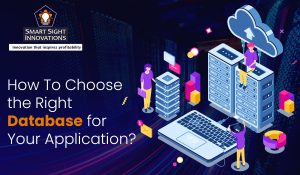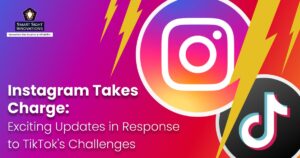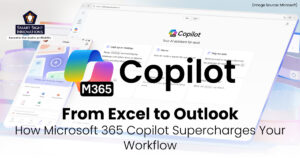 Summary:
Summary:
MySQL, Oracle, Microsoft SQL Server, MongoDB, Redis, Elasticsearch, or PostgreSQL? Finding the right database for your application is not easy. Some pros of the right database include the flexibility to scale properly, improved UX and happy customers and maintaining strong availability and uptime. On the other hand, the cons can show that your data is unsuitable for the database, support and operation costs break your budget and your user base outgrows your database quickly. Knowing about the essential features can help you decide.
Several databases fit the needs of all types of projects. Note that each of them has some strengths and weaknesses. Working with a proven database development company can help you understand the different features and how they meet your goals. Each service can use the type of database that best suits its needs. Some of the key considerations while choosing the right database include:
-
The amount of data you store
Data volume is the amount of data that you need to store and retrieve as critical application data. The data amount may vary depending on
- A combination of the selected data structure
- The ability of the databases to separate data across multiple file systems and servers.
Suppose you estimate that the data is in gigabytes or less, then any database can handle your data. In-memory databases are also possible. But there are still many database options for handling data that can be in the terabyte (thousands of gigabytes) range.
When the requirement is in petabytes (millions of gigabytes) or more, a few databases will serve your purpose. You need to be prepared for significant data storage costs, either in capital expenditures for on-premises storage or in operating expenses for cloud storage.
So choose a database keeping in mind the overall data volume generated by the application at a specific time and the size of the data to be retrieved from the database. Consult a database development company for guidance.
-
Consider speed and scalability
How much data are you talking about? Is it going to grow infinitely over time?
Many databases cannot handle thousands of users querying terabytes or petabytes of data due to scaling issues. It is important to know the scaling requirement before installing the database for your app.
In any case, you need a database technology that is not limited to the amount of data you can store on a single PC. You can choose options like MongoDB or HBase where you can distribute the storage of your data across the cluster and scale horizontally instead of vertically.
Some databases are optimized for read-oriented apps, while others support write-oriented solutions. Choosing a database that can meet the needs of your app leads to a scalable setup.
For instance, MongoDB is faster when it comes to handling large unstructured data whereas MySQL will be faster for structured data.
-
Choose Go for data modeling
Before choosing any database, it is advisable to do data modeling. It is a representation of the data structures to be stored in the database and is an expression of business requirements.
Data modeling is very useful if your app has features like
- Search query
- Reporting
- Location-based features
Apps with such traits require multiple databases to manage different types of data. For example, Uber uses MySQL, MongoDB and many other databases. They use MongoDB for their CDN and MySQL for their business logic.
Uber uses big data systems as the basis for its technologies, along with tools such as Postgres, Redis and MySQL. The company is expanding MySQL with its distributed column store to streamline data processing.
Using the right database makes it very easy to store high amounts of incoming data.
-
Consider support
Do you have the in-house expertise to meet this new technology? Can your in-house team configure it properly?
The support you may need for your database is vital. This may be harder than you think, especially if you are using this technology in the real world.
You need to consider the security of the system. If you configure the databases with their default settings there will be no security. Anyone can connect and retrieve data and write data to them. So hire the experts who know what they are doing to set up a secure system.
Big or small, an organization should choose an arrangement that provides professional paid support to guide you through initial setup decisions. A smart choice is to outsource to professional database development services for support.
-
Look for excellent integration
The system you are considering will need to be integrated with your other software systems such as your email marketing platform and CRM system. This may be a direct integration of specific software or there may be an open-source code available for integration.
The important thing to consider when choosing the right database is which systems do you need to integrate? Make sure your database management system can be integrated well with other tools and services within your current project.
-
Best programming languages
Most databases support APIs (application program interfaces) for several programming languages. However, the preferred programming language in your application can sometimes affect your database.
For instance, JSON is the right data format for JavaScript. Therefore you may want to choose a database that supports the JSON data format for a JavaScript application.
Do you want to use a strongly-typed programming language? Then you may want to choose a strongly-typed database.
-
Consider data security
Are you thinking of using synchronized and decentralized storage? Then, it is important to access, transmit and store data securely. To be sure, you need to address:
- Authentication: Authentication should be flexible and allow the use of standard, public and custom authentication providers. Support for unknown access is also important for many apps.
- Data at rest: For data at rest on the server and client, it’s good to have support for both file system encryption and data-level encryption.
- Data in motion: For data in motion, communication must be over a secure channel.
- Read/write access: To have read/write access to data, the database must provide control over what data can be accessed and modified by users.
-
Your budget
Databases can range from free to expensive. Some databases have both free and paid versions. Sometimes, they have more than one level of paid offering. For example, you may get an offer at different service response times. Also, some databases are available in the cloud on pay-as-you-go terms.
If you choose a free, open-source database, you may have to forgo vendor support. But, at the same time, you may need an expert team for continued support.
Cost is a factor in any business expense. It is wise to make sure that your decision is based on the appropriate software for this purpose.
Avoid a costly mistake by taking a system you invest in only to find that it isn’t advanced enough for your needs. Opt for the software for the functionality it provides. It is best to hire professionals who offer the right expertise and support throughout.
Over to you
You are putting your time, effort and resources into improving your app. For creating the right interface, and writing code that’s easy to maintain, don’t pick a database in a hurry. You need a specific understanding of your app’s information needs to make the right database choice.
The right database supports your app but a bad database can hurt your efforts. With so much at stake, it’s worthwhile to choose a top CRM software development company and ensure that your new database supports your app needs now and also eases your scaling in the future.














